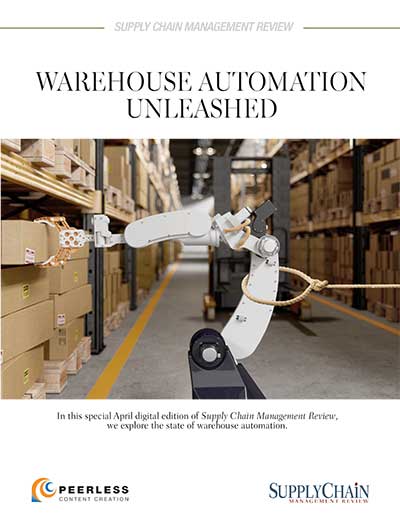Editor’s Note: Pierfrancesco Manenti, is VP Analyst, Gartner Supply Chain Practice
When it comes to strategic planning, it’s easy to lose sight of the big picture and get caught up in details.
This is a challenge many chief supply chain officers (CSCOs) grapple with when translating visions, goals and objectives into understandable, easily communicated, integrated priority actions due to the natural complexity of supply chain and strategy.
To keep strategic planning on track, supply chain leaders need a simple way to formulate and express their plans. This can be achieved by taking a top-down approach to understand the internal and external context of the supply chain now and in the future. This includes an end-to-end analysis of capabilities from organization, process and skills to data and technology.
In order for CSCOs to develop an end-to-end strategic plan that factors in all these interconnected parts without getting lost in the details, consideration needs to be given to five essential capabilities.
5 supply chain capabilities for strategic planning
By factoring in these capabilities, CSCOs can develop an easy to follow construct by which to map supply chain strategy, priorities and interdependencies during the initial scoping phase of strategy development.
- Demand sense: This capability involves learning and monitoring what customers want. Demand management, forecasting and demand sensing are included here.
- Supply sense: Organizations need to know what is possible in their supply chains. This capability includes processes such as supply chain planning, supply risk management and supplier relationship management.
- Decide and commit: With their supply and demand sense capabilities, companies can orchestrate their end-to-end supply chains and make profitable promises to customers. Processes that enable these actions include control towers, product life cycle management, and advanced sales and operations planning.
- Supply response: The operations in a supply chain that make things happen — inbound logistics, manufacturing, asset management — fall into this category.
- Demand response: Processes such as logistics, multichannel fulfillment and e-commerce enable companies to give customers the products and services they want.
Integration and consensus enable supply chain strategy
To create a successful end-to-end supply chain strategy, all five capabilities must be well-developed and highly integrated. Operating as a siloed organization where strategic decision making takes place independently across a number of groups will not yield a successful strategic plan. CSCOs must gain consensus for the strategic plan and its related investments from across the organization.
This can be achieved by involving supply chain leaders from a range of functions and processes across the end-to-end supply chain and having the team map current and desired supply chain capabilities together. By doing this as a cross-functional group, CSCOs can capture different views on the weakness of current capability gaps and the importance of potential improvements or investments. Lastly, CSCOs must make sure they build a compelling business case based on the priorities and the expected business value and risk agreed by the cross-functional team.
SC
MR


Latest Supply Chain News
- Tech investments bring revenue increases, survey finds
- Survey reveals strategies for addressing supply chain, logistics labor shortages
- Israel, Ukraine aid package to increase pressure on aerospace and defense supply chains
- How CPG brands can deliver on supplier diversity promises
- How S&OP provides the answer to in-demand products
- More News
Latest Resources

 Explore
Explore
Business Management News
- Survey reveals strategies for addressing supply chain, logistics labor shortages
- How CPG brands can deliver on supplier diversity promises
- How S&OP provides the answer to in-demand products
- AI, virtual reality is bringing experiential learning into the modern age
- Tips for CIOs to overcome technology talent acquisition troubles
- There is still work to do to achieve supply chain stability
- More Business Management
Latest Business Management Resources

Subscribe

Supply Chain Management Review delivers the best industry content.

Editors’ Picks





